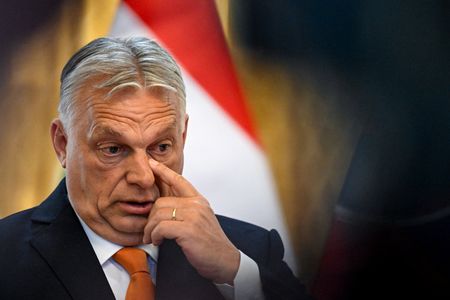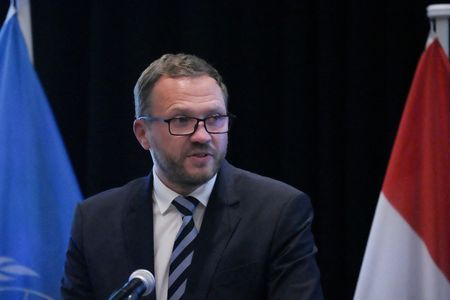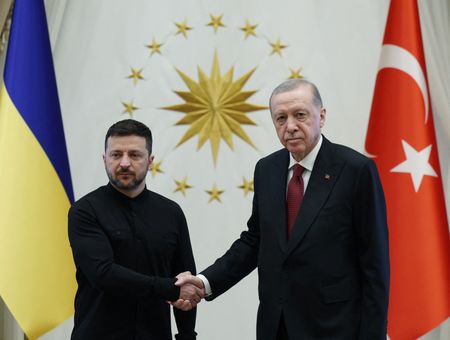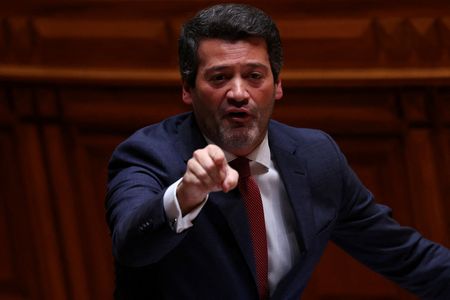BUDAPEST (Reuters) – Dozens of news outlets, think tanks and rights groups published an open letter on Thursday protesting against planned legislation that they said is meant to silence criticism of the government.
Prime Minister Viktor Orban’s Fidesz party submitted the bill on Tuesday that would draw up a list of organisations that get foreign funding and restrict or even shut them down if the government decides they threaten Hungary and its culture.
Orban pledged to crack down on foreign funding of independent media, opposition politicians and NGOs in March, in what his critics said was a move to strengthen his position ahead of elections due in 2026 when he faces an unprecedented challenge from a new opposition party.
Orban – who has repeatedly clashed with the EU over policies that critics say erode democracy in Hungary – has described such groups as a “shadowy army” funded by foreign powers to undermine the state.
“The bill … is an authoritarian attempt to cling to power. Its aim is to silence all critical voices and dismantle what remains of Hungarian democracy,” read the letter signed by 62 non-governmental organisations, think tanks and media outlets.
Signatories include the Hungarian branches of Amnesty International, Habitat for Humanity and Transparency International, as well as the Hungarian Helsinki Committee rights group and leading independent news sites.
“The draft law is the most serious attack yet on the remaining independent institutions in Hungary. It targets not only civil society and the media but also threatens companies and individuals,” the letter said.
‘DECISIVE STEPS’
The bill was also condemned by opposition politicians and independent journalists, many of them likening it to Russia’s so-called “foreign agents law”.
Russia adopted legislation in 2012 allowing authorities to label foreign-funded NGOs engaged in political activity as foreign agents.
Hungarian government spokesman Zoltan Kovacs said that the bill was introduced “in response to escalating concerns about foreign-funded organisations”.
“Just as the United States began cleaning house, freezing USAID funding … Hungary is also taking decisive steps,” Kovacs wrote in a post on X.
If the bill is passed, organisations whose activities are considered a threat by the government will have their bank accounts monitored, and funds from abroad considered a threat can be blocked.
Groups could be listed if the Sovereignty Protection Office, set up in 2023, says their activities “undermine Hungary’s independent, democratic and rule-of-law-based character” or violate Hungary’s constitutional identity or Christian culture.
Challenging the primacy of marriage, the family and biological sexes would also be considered a threat.
If an organisation accepts foreign money without approval from authorities, it has to pay a fine of 25 times the actual funding received. If they are unable to pay the fine within 15 days, they must cease operations, the bill says.
(Reporting by Anita Komuves; Editing by Andrew Heavens)











